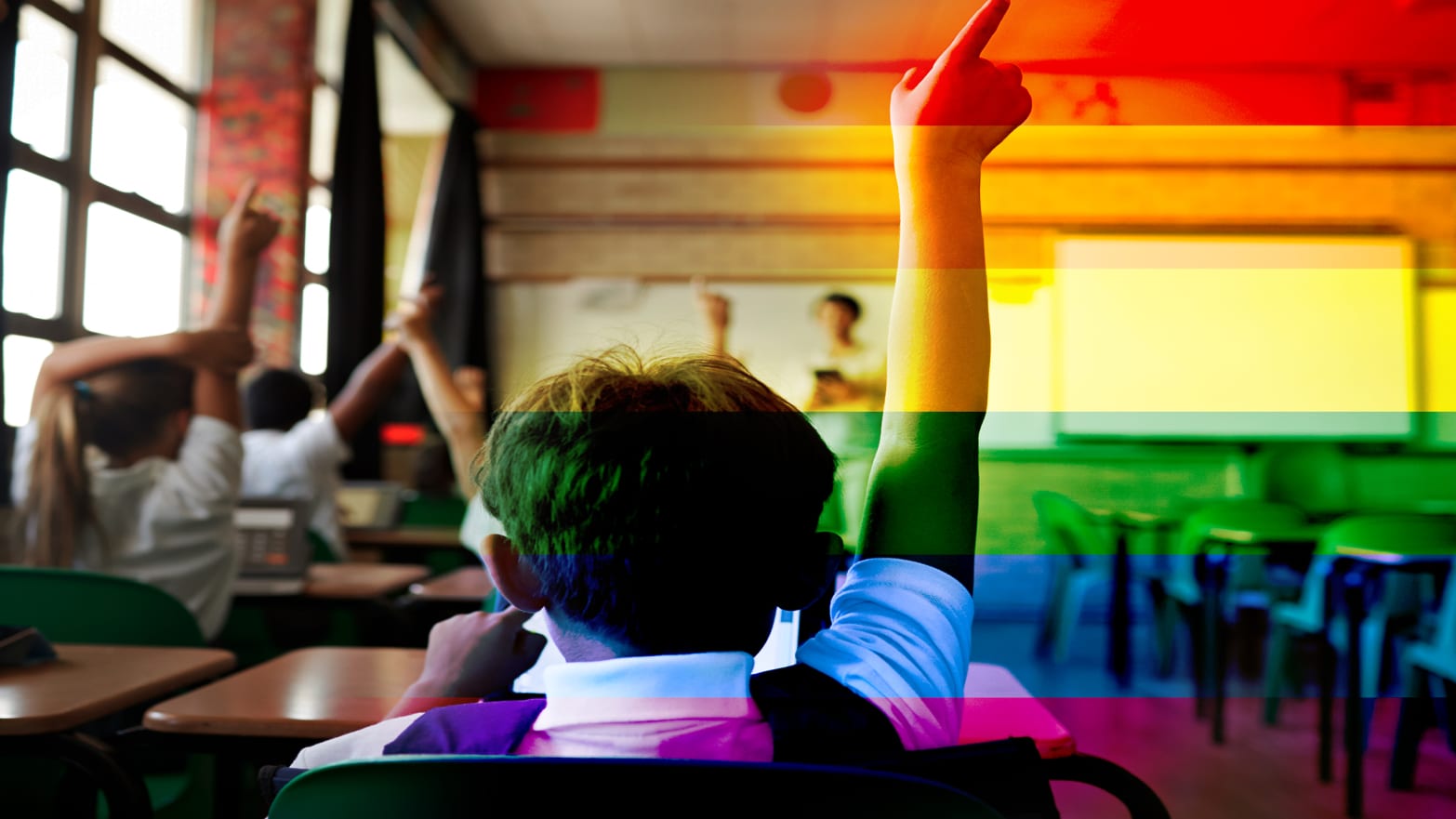
LIFE OF LGBTI PEOPLE IN ARMENIAN SCHOOLS. part 1
“I remember I was 14 when I, by chance, met a guy in summer, we got acquainted, exchanged contacts and talked for about 2 months, then he left for Russia and I got depressed. I fell in love with that guy, I was 14 or 15 years old when I clearly understood that I am interested in boys” tells Adam (name is changed) and sadly remembers the 9th of September at his school.
“It is impossible to describe in words how it feels when you reach puberty and realize that your sexual orientation is different. It was the beginning of the 9th grade. I remember going to class in September and realizing that I was a stranger in that environment. I felt different, but I can not explain how it feels when you feel like a stranger, isolated,” he says with a smile.
Adam, who is not like the majority, wants to live with his identity but because of his different behavior and appearance, his friends were alienated, he was removed from social networks, schoolboys made fun of him, teachers became indifferent, and he was self-contained and reserved.
“The way I dressed was different, I was not into «թեմաներ» (“topics for arguments”) behind the school. On the contrary I was against that kind of things like fighting. There was no Russian slang in my vocabulary either like «նիրյադ ըլնել», «կուռաժիտ ըլնել». That’s why the boys did not talk to me. Well, how do I explain it? It all that makes you an “outcast”, I was the only good student among the boys. I always participated in academic competitions. I remember they called me a “nerd” and said, “how can that “fruit” go to the competitions?” Or they said, “he will pass this stage but will fail the next one because they will not let him to, “Adam wants to remember this much about the reasons.
To my question whether the teachers did not intervene, he answered after a little silence. “I first heard the word ‘pervert’ from a Church History teacher. He was a zealous Christian, a patriot. He said that everyone should follow the Apostolic Church. Everyone who does not believe is a “sectarian”, “perverted”. By “perverted” he meant LGBTI people. And our physical education teacher once said about HIV that it is a disease which is spread through “faggots”, so we should not “communicate with” them”.
Adam left school at the age of 15 and went to college, where his sexual orientation was revealed when he once forgot to hide a necklace with an LGBTI sign under his clothes. After that “incident” a habit formed among the boys of the class, he was greeted and sent home with insults, and mocked during classes. Insults and swearing were accompanied with persecution and physical violence, which were increasing year by year.
“Every morning when I entered college, I heard various remarks about me and my family, insults with the most disgusting words. They said, “this faggot came again. Look at how he’s dressed, his movements and the way he walks, even girls do not walk like that.” During classes, the boys would sit behind me and start mocking , punching me, writing insulting words on papers and throwing them at me, drawing on my back. And on the way home, they would gather at the exit door, as soon as they saw me approaching, someone would put his foot on the threshold so that I would stumble and fall… I fell once. There have been cases of beatings… several times… “behind the building”. Well, my hair and clothes were discussed among college students. They said, “How can a boy have long hair?” Adam says, adding that he felt insecure, especially after cases of physical violence. That’s why he didn’t go to classes since the second semester of his sophomore year, and he had a hard time graduating from college.
“I remember dreaming when I would finish school. It was the same way in college. “I dreamt of the day when I would finally graduate, and when I would never see those people again,” says Adam.
Karen (name changed) felt interested in boys from an early age but revealed the term “homosexual” when he was 13 years old. “I used to follow a blogger on the Internet who lived in Germany and often talked about his sexual orientation. I knew I liked boys, I just did not know what it was called. That’s how I found out I was gay,” says Karen and adds that he has always been in conformity with his identity, it’s the others that weren’t.
He had problems since he was a child. The reason is clear. He was born, raised, and attended school in a village, in a closed society, where everyone knows one another.
“Not only my class but the whole school of 300 people knew me as some special kind that existed,” Karen remembers his school years. He’s trying to list reasons. “Well, at school I was always different from the boys, both physically and in the way I talked and dressed, which was already a big problem.”
Because of his “non-standard” appearance, the teachers or schoolboys didn’t like Karen. “The physical education teacher always insulted me. He called me “faggot”, “fruit”. The boys did not communicate with me, they did not even accept me around them, they offended me a lot. “I was called “faggot” and a lot of other insulting words, which I do not want to say now.”
He remembers that there were a lot of fights because he was insulted and tried to defend himself. He also remembers the cases of physical violence on the way home or behind the school and the indifference of teachers. “If the teachers had seen it, they would have separated us, but they would never have defended me. They would never say I was right, but they wouldn’t blame the others either. “They would never say that they were wrong.”
This is how the image of his “man in solitude” was formed during his school years. The argument for the “why alone?” question is also clear. “If there was a problem, no one would stand by me, support me,” says Karen.
He’s sure his parents knew about his sexual orientation. They would ask what was going on at school. They understood the reason. Sometimes they would call the school, but “those cases” continued throughout the school year.
He repeatedly asked his parents to change schools. He says he had the choice to go to school in a nearby town. He thinks that in this way he would at least avoid physical violence because the town was bigger, the people were many and did not know each other there. But the parents did not meet his request, saying, “It is not convenient in the town, our acquaintances are here in the village.”
Speaking about his school progress, he mentions that he was a capable student. He is now studying at the university with excellent progress. But it is not surprising that he finished school with very low grades. “The reason was that I was constantly discriminated against every day. Even if I did well in class, I was not highly graded by the teachers. During PE, I ran the best in the class, but the physical education teacher always graded me the lowest compared to other boys. I did not have a large circle of friends either, the children tried not to talk to me. “
“Those lessons that I learned in school in the form of physical violence and insults will always stay with me until the end of my life, like a wound, they will not be forgotten, because they have already become a part of me,” says Karen at the end of the conversation. After a few seconds of silence he adds. “I was able to use my pain and difference to get out of that hole. Not everyone succeeds. I was able to do it with my effort. It was difficult but not impossible. “
Unfortunately, schools in Armenia are not a safe place for LGBT children. Stories like this show that children are discriminated against because of their sexual orientation or gender identity by both classmates and teachers, which causes many psychological problems, leads to isolation, low self-esteem, and hinders the realization of their right to education.
Nare Hovhannisyan
Read the second part HERE
The compilation and publication of this material has become possible within the framework of the project on Capacity Building and Empowerment for Protection of LGBTI Human Rights in Armenia implemented by New Generation Humanitarian NGO with the financial support of the Norwegian Helsinki Committee. The contents of this article are the sole responsibility of the author, and do not necessarily reflect the views of New Generation Humanitarian NGO or the Norwegian Helsinki Committee.




